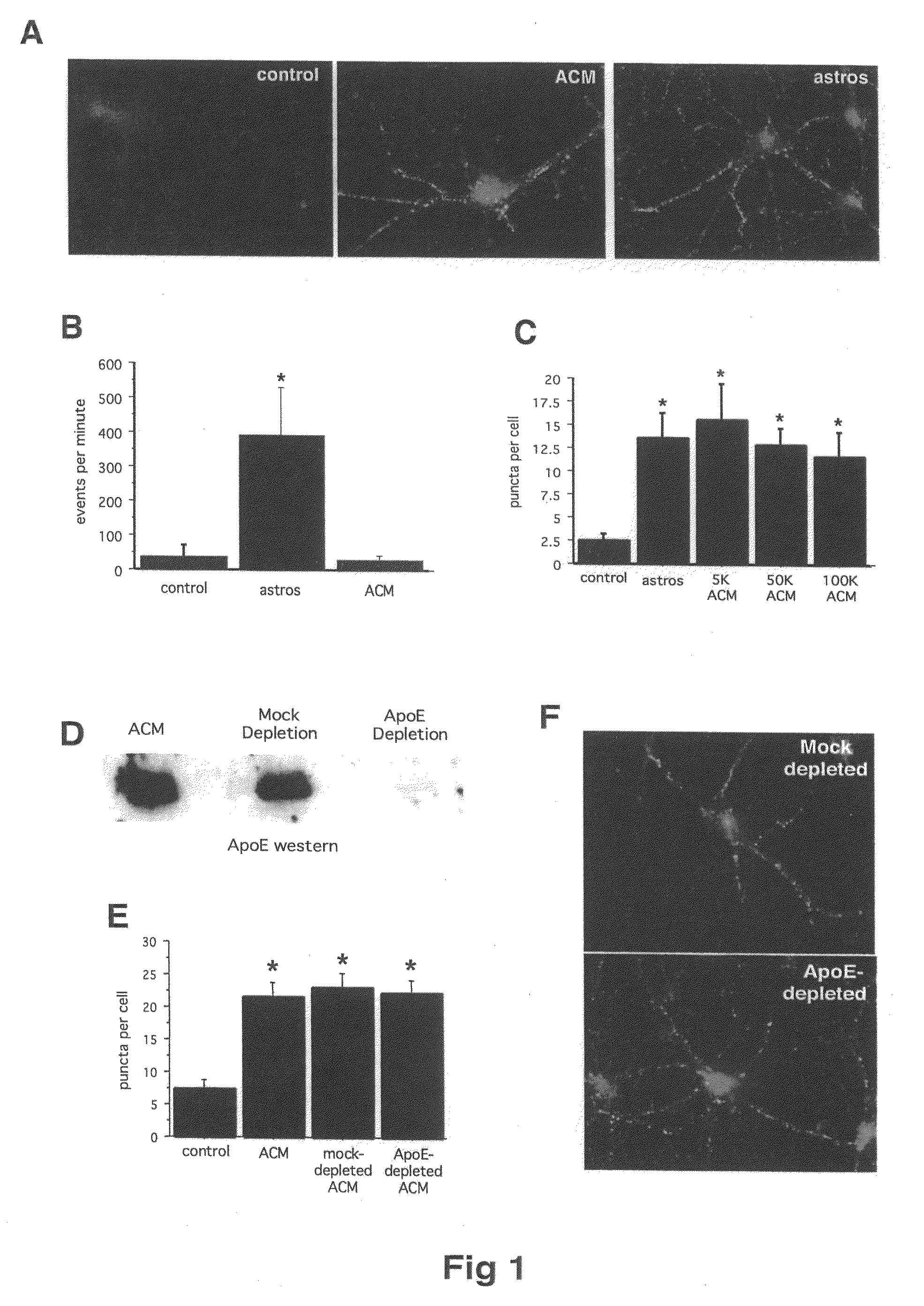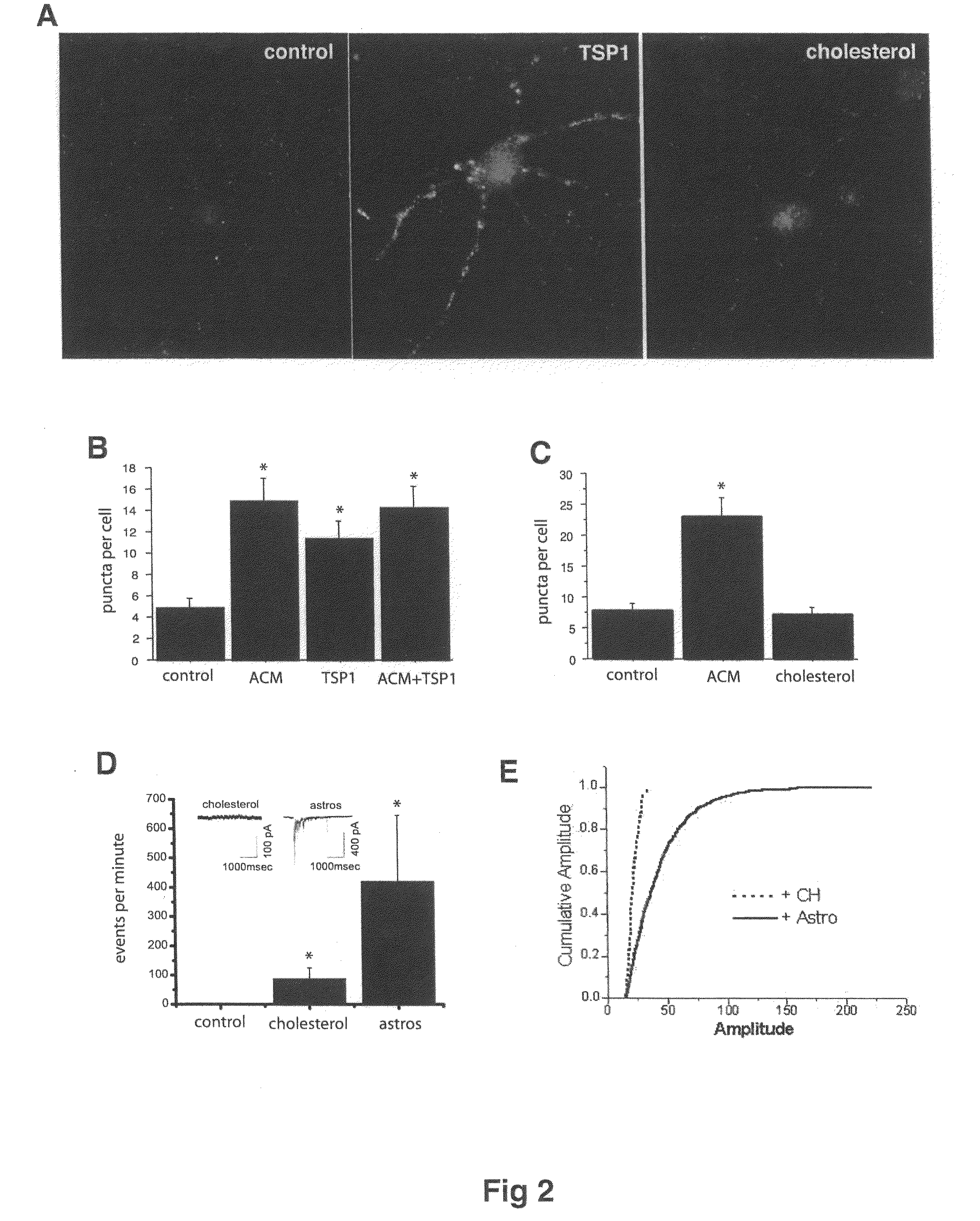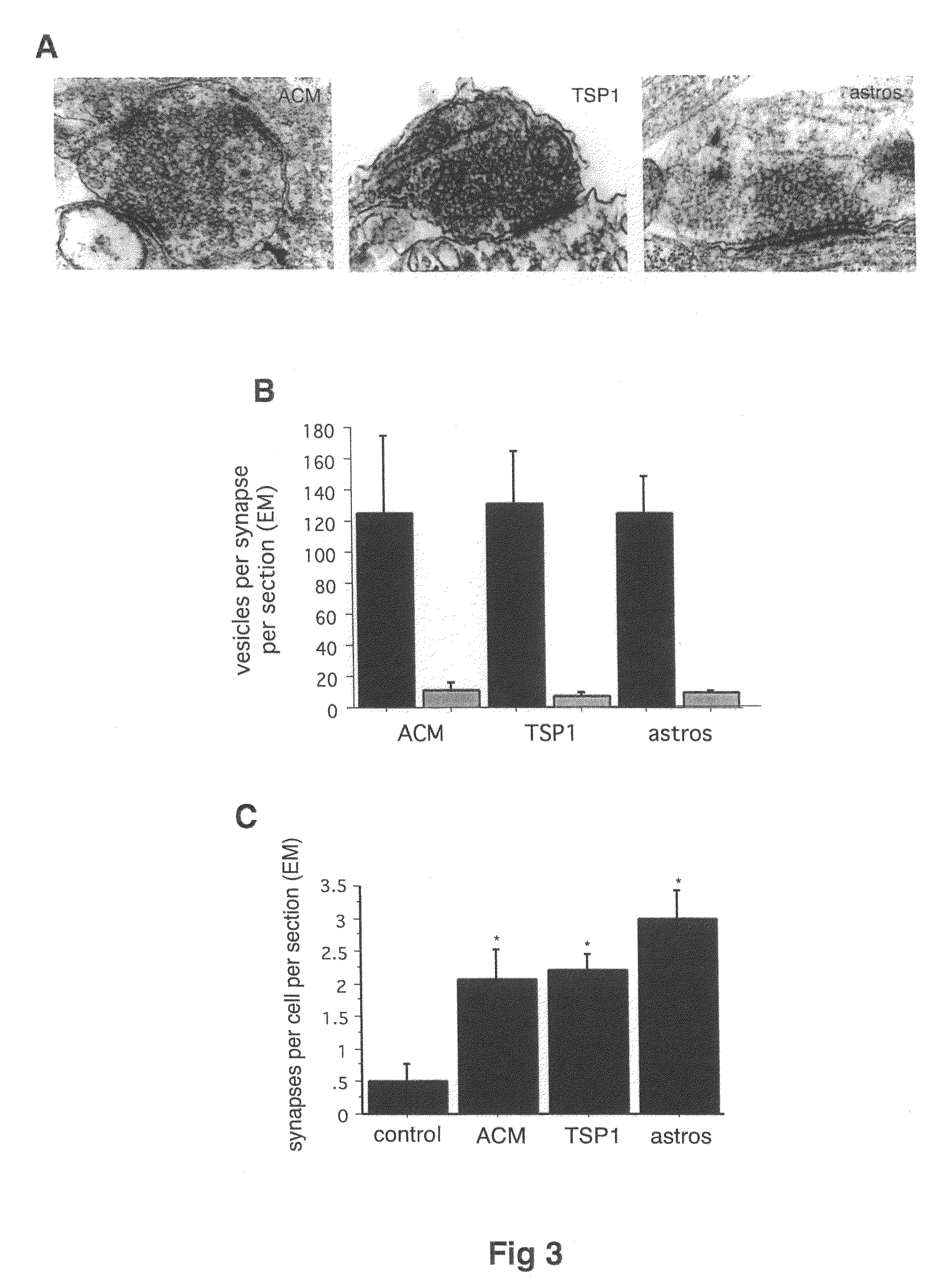Modulation of synaptogenesis
a technology of synaptogenesis and cytokine, which is applied in the field of synaptogenesis modulation, can solve the problems of severe disruption, cns synapses are progressively reduced in number, and no soluble molecule has been identified that is sufficient to induce or increase the number of cns synapses. to achieve the effect of enhancing synaptogenesis
- Summary
- Abstract
- Description
- Claims
- Application Information
AI Technical Summary
Problems solved by technology
Method used
Image
Examples
example 1
[0102]The number of synapses between CNS neurons in culture is profoundly enhanced by a soluble signal secreted by astrocytes, which are identified herein as thrombospondins (TSPs), which are a necessary and sufficient component of the synapse-promoting activity of astrocyte-conditioned medium. TSPs induce ultrastructurally normal synapses that are presynaptically active but postsynaptically inactive. In vivo, TSPs are concentrated in astrocytes and at synapses throughout the developing brain, and mice deficient in both TSP1 and its ortholog TSP2 have a significant decrease in synapse number. These studies identify TSPs as the first known soluble synaptogenic protein in the CNS, and identify astrocytes as important contributors to synaptogenesis within the developing CNS.
[0103]TSPs are large oligomeric extracellular matrix proteins, about 500 kD, that mediate cell-cell and cell-matrix interactions by binding an array of membrane receptors, other extracellular matrix proteins, and cy...
PUM
| Property | Measurement | Unit |
|---|---|---|
| time | aaaaa | aaaaa |
| length | aaaaa | aaaaa |
| length | aaaaa | aaaaa |
Abstract
Description
Claims
Application Information
 Login to View More
Login to View More - R&D
- Intellectual Property
- Life Sciences
- Materials
- Tech Scout
- Unparalleled Data Quality
- Higher Quality Content
- 60% Fewer Hallucinations
Browse by: Latest US Patents, China's latest patents, Technical Efficacy Thesaurus, Application Domain, Technology Topic, Popular Technical Reports.
© 2025 PatSnap. All rights reserved.Legal|Privacy policy|Modern Slavery Act Transparency Statement|Sitemap|About US| Contact US: help@patsnap.com



